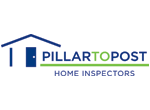Water damage can come from a variety of sources: storms, flooding, broken water pipes and lines, leaking washing machines, and more. This can lead to mold and odor problems, and worse. If left unmitigated, water damage can eventually cause structural damage, which can entail significant costs to repair and can even affect a home's value.
Prevention is the first defense against water damage. Here are some basics on preventing water damage and its effects:
-
Water supply lines to and from washing machines and dishwashers should be regularly checked for leaks. Both the hoses themselves and the connections should be examined. Even a small leak can cause water damage over time, so any leaks should be repaired immediately. If the laundry room is located on the main floor or above, damage to the floor and ceiling below can be especially problematic.
-
Tank-style water heaters are prone to leaking, especially after several years of use. Over time, the bottom of the tank can rust out, causing a serious leak. Ideally, an overflow valve should be installed that will conduct leaking water to a pipe that will drain either outside or to an appropriate interior drain.
-
Another common source of water leaks is the icemaker supply line; this should be checked as well.
-
Be aware that pipe leakage can occur inside the walls or ceiling and may be impossible to detect visually before damage has already occurred.
-
Gutters and downspouts should be checked to ensure that water is flowing away from the home's foundation. Make any adjustments, and check the flow again using water from a garden hose.
-
Water leak detectors can be installed at floor level near water heaters and interior air conditioning units. Simple, inexpensive wireless models are widely available and will sound an alarm when water is detected on the floor near these appliances.
For more ideas on preventing water and other kinds of damage around the home, contact your local Pillar to Post home inspector. |





No comments:
Post a Comment